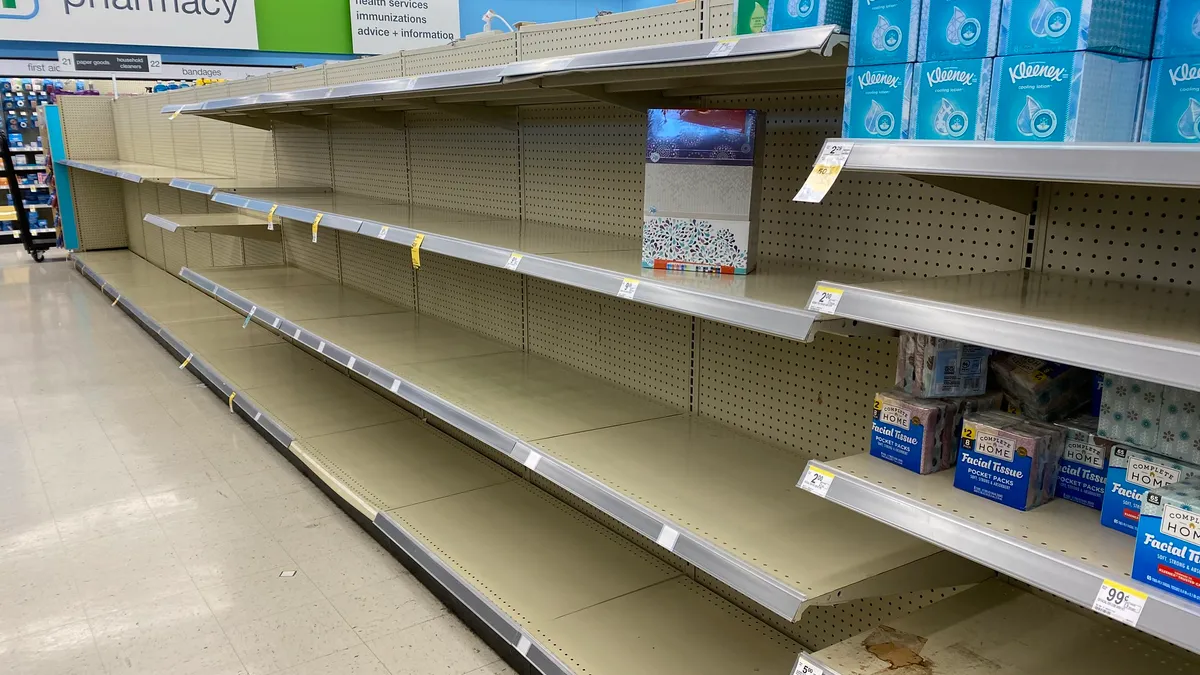Dive Brief:
- The majority (65%) of the 1,510 employers surveyed by HR association WorldatWork said their organizations do not plan to offer incentives or bonuses such as "hazard" or "battle" pay to workers required to work on-site during the COVID-19 pandemic, according to survey results published April 9 and shared with HR Dive.
- Retail and healthcare workers are most likely to receive this type of pay, WorldatWork said. But more than half of respondents are at least planning to pay out (or have already paid out) salary increases this year, and more than one-third have provided full salary continuation to employees who remain employed but are unable to work or telework. Nearly half (47%) plan to compensate these employees via an existing leave policy or benefit.
- Most (60%) surveyed organizations are not offering additional support to those in caregiving roles. Instead, 70% are promoting employee resource programs, 68% are sharing tips for physical and emotional well-being, and 55% are encouraging social connection while maintaining physical distance.
Dive Insight:
Organizations that haven't closed due to the pandemic vary in their approaches to compensation and leave. Layoff and furloughs have resulted in record unemployment levels as U.S. companies struggle to meet payroll requirements, The New York Times reported last week.
On the other hand, some larger employers have opted to increase benefits. Microsoft confirmed to HR Dive April 14 that it would offer up to 12 weeks of paid leave to employees dealing with school closures caused by the pandemic. Similarly, Verizon previously told HR Dive that it launched a caregiver benefit. Citigroup said earlier this month that it would continue to pay summer interns whose start dates it had delayed due to the pandemic.
Employers are generally not required by the Fair Labor Standards Act (FLSA) to offer "hazard" pay, or additional pay for performing hazardous duty or work involving physical hardship, according to the U.S. Department of Labor. But the FLSA does require that such pay be included as part of a federal employee's regular rate of pay in computing overtime pay. Commentators in recent weeks argued that workers at businesses like grocery stores deserve hazard pay, Eater reports, due to the hardships caused by the pandemic, including increased consumer demand and scarcity of protective equipment.
Workers at small businesses with fewer than 500 employees are covered by the federal Families First Coronavirus Response Act, which makes them eligible for two buckets of paid leave provided the leave is requested for certain situations related to the pandemic. But the law contains numerous provisions that could allow employers with fewer than 50 employees to claim an exemption from some of its requirements, and many employers have affordability concerns despite IRS guarantees that they will be eligible for tax credits for providing the leave.
Overall, the pandemic could cost employer-sponsored healthcare plans as much as $23 billion, depending on the number of U.S. citizens infected, according to the Integrated Benefits Institute. COVID-19 treatment and testing costs alone could increase costs for self-funded employers by as much as 7%, Willis Towers Watson estimated in March.














